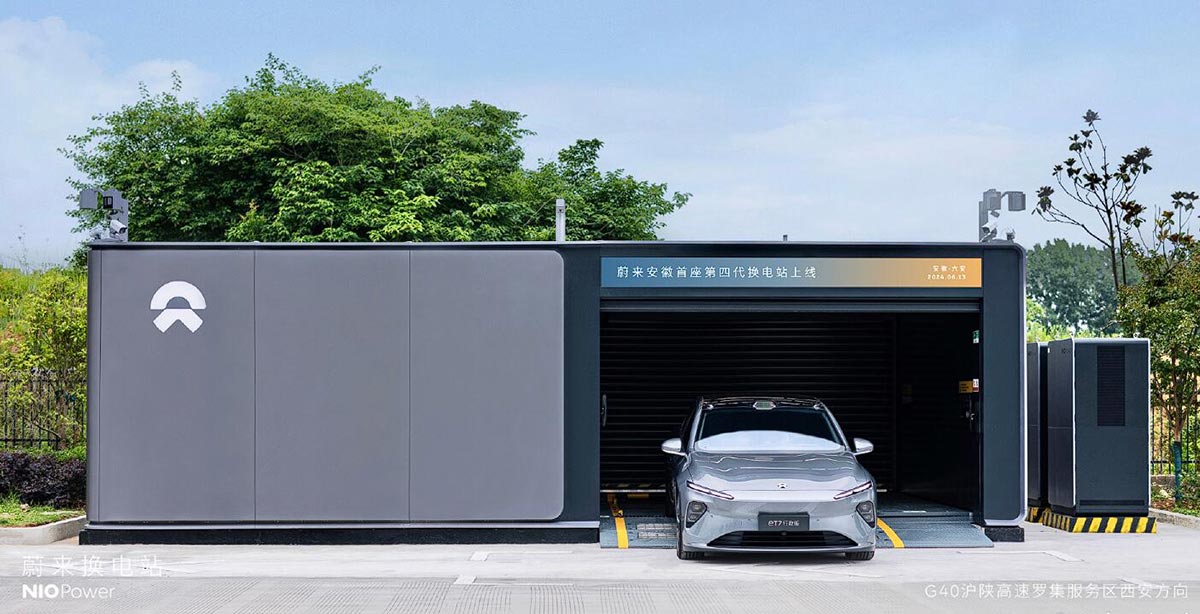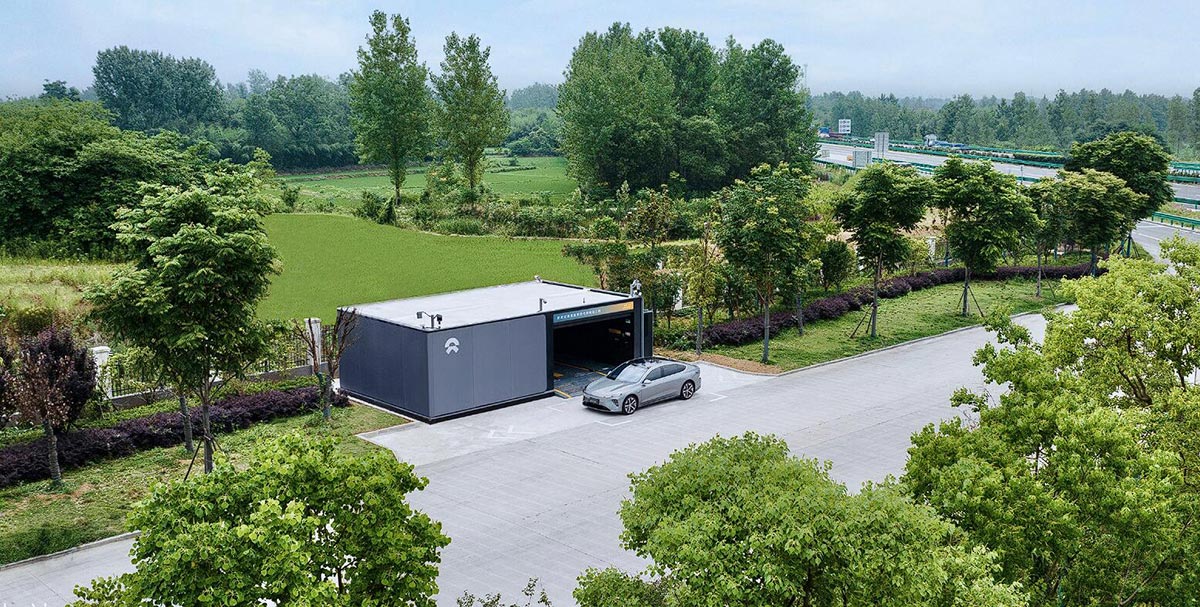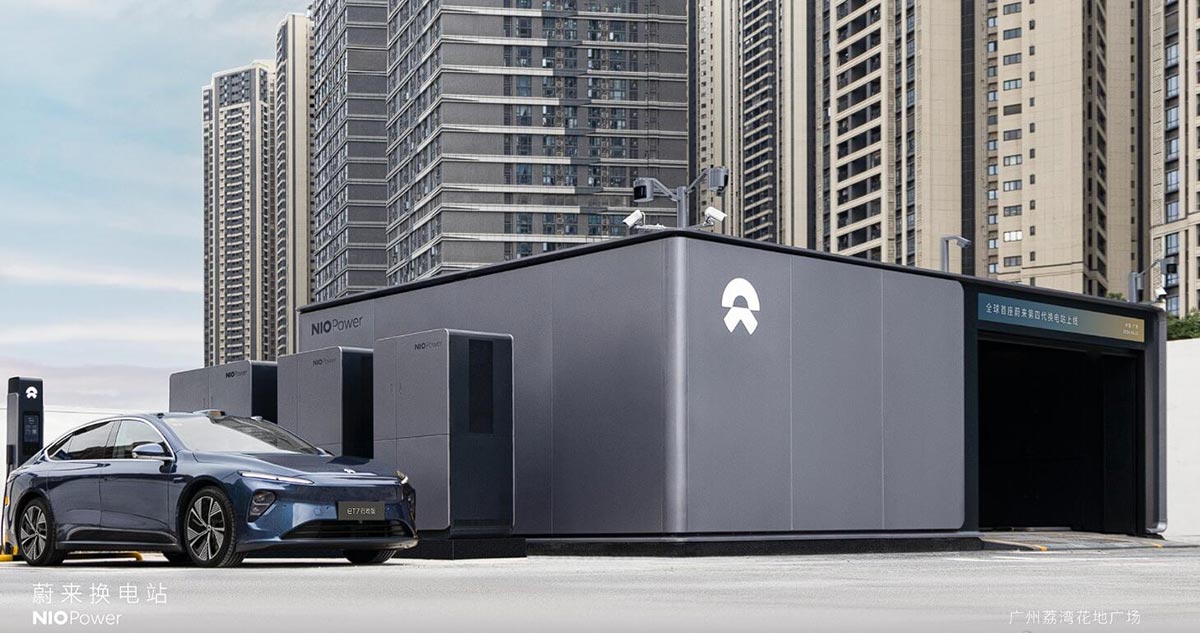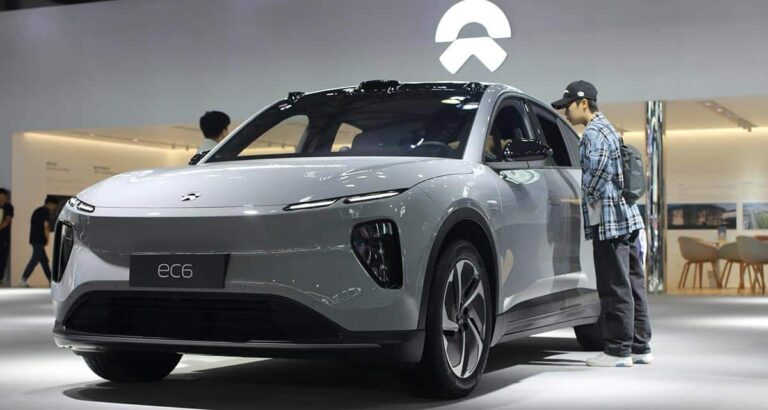Nio's fourth-generation battery swap stations are more open, supporting service for multi-brand vehicles with more battery pack sizes.
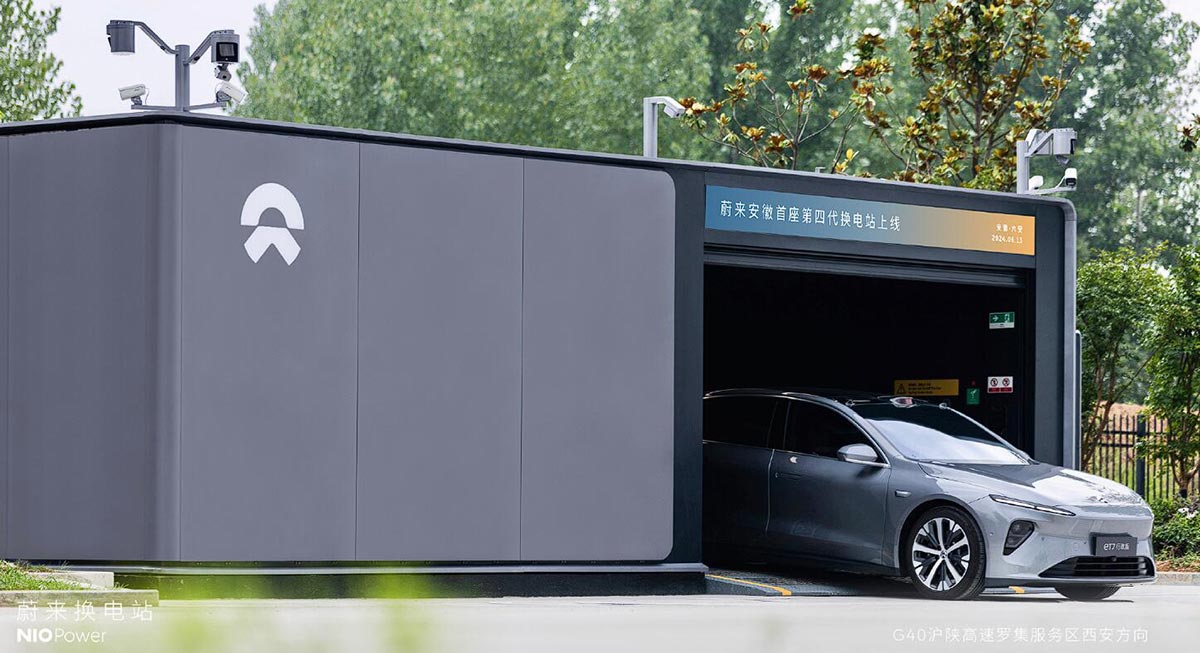
Nio (NYSE: NIO) saw its first fourth-generation battery swap stations go live today, marking the start of operations for its stations that support multi-brand models without modifications.
The company had two fourth-generation stations go live today, in Guangzhou, Guangdong province, and Lu'an, Anhui province, Nio said today on its mobile app.
The Lu'an site is the first to be built by Nio in partnership with Zhongan Energy, which was founded earlier this year with the goal of building 1,000 stations with energy storage, charging and battery swap capabilities.
Nio's fourth-generation battery swap station cuts the time per service by 22 percent, boosts the number of batteries stored to 23, and provides up to 480 services per day.
The third-generation battery swap station, which began installation in April 2023, is capable of storing up to 21 battery packs, up from 13 in its predecessor and five in the first generation of the facility.
The fourth-generation station is equipped with six ultra-wide-angle LiDARs, four Nvidia Orin X chips, and a total computing power of 1,016 Tops.
The more powerful hardware makes it possible for these sites to support vehicles to autonomously complete services and self-park in more complex environments in the future, according to the company.
Nio's fourth-generation battery swap stations are more open and support servicing of multi-brand vehicles with different sized battery packs, the company said.
The stations will be able to offer upgraded services to users including Nio, Onvo and the company's battery swap partners, it said.
Nio launched the Onvo sub-brand on May 15 and began pre-sales of its first model, the L60, whose official launch and delivery will be in September.
The company has more than 1,000 third-generation battery swap stations, which will need to be retrofitted for Onvo models, Nio founder, chairman and CEO William Li said on a June 6 earnings call.
The cost of retrofitting each third-generation station is roughly RMB 200,000 (27,580) to RMB 300,000, Li said, adding that by the end of the year, there will be more than 1,000 battery swap stations available for Onvo.
Nio's battery swap stations can break even if they provide 60 services per day, which is currently around 30 per day, according to Li.
As of today, Nio has 2,432 battery swap stations in China, 804 of which are located along highways, according to data compiled by CnEVPost.
The company plans to continue adding 1,000 more battery swap stations in China in 2024, bringing the total to more than 3,310, according to plans it unveiled at Nio Day 2023 late last year.
Nio's next-generation liquid-cooled superchargers also became operational today, with a maximum charging power of 640 kW and a maximum output current of 765 A.
For Nio's long-range battery packs with 100-kWh capacity, it can charge from 10 percent to 80 percent in 12 minutes when using the next-generation supercharger, according to the company.
As of today, Nio has 2,275 supercharging stations in China offering 10,390 charging piles and 1,598 destination charging stations offering 12,243 charging piles.
($1 = RMB 7.2510)
